This is the third article in my “Onions” series, and is easier to understand if you have read the first two. I also published a spin-off article that lays down the basics of Diplomacy Strategy.
Click here to read Onion Layer 1, Politics
Click here to read Onion Layer 2, Tactics
Click here for The Top 5 Strategic Goals in Diplomacy
With that said, this post does stand on its own as an in-depth analysis of Diplomacy Strategy. Please enjoy!
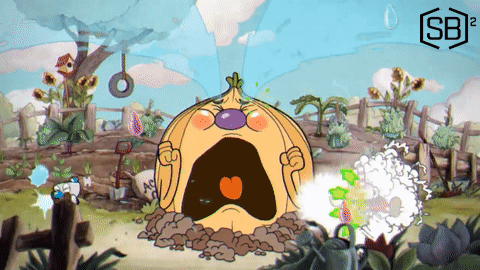
Diplomacy is a game of intrigue.
Although Diplomacy involves socializing (Politics), and although Diplomacy involves moving pieces around on a board (Tactics), those aspects of the game exist in order to make the game of intrigue possible. For the uninitiated, a glimpse into the secret scheming within a high-level Diplomacy match can feel as dizzying as peering over the edge of an unexpectedly-steep cliff.
To help my readers peer into the dark abyss of Diplomacy with the light of clarity, I have offered a heuristic. Think of a Diplomacy match as consisting of three layers: Politics, Tactics, and Strategy. Each layer is “deeper” than the last, that is to say, more indicative of each player’s true intentions.

The Political Layer consists of the players’ written or spoken communications (a.k.a. “press”), their reputations, personalities, and opinions of each other. Players do send messages and express feelings that accurately inform you about their plans and intentions. However, players also use their press to lie and manipulate. At critical moments, the Political Layer can often darken your understanding of the match as much as enlighten it. So ascertain the truth, we look deeper—to the Tactical Layer.
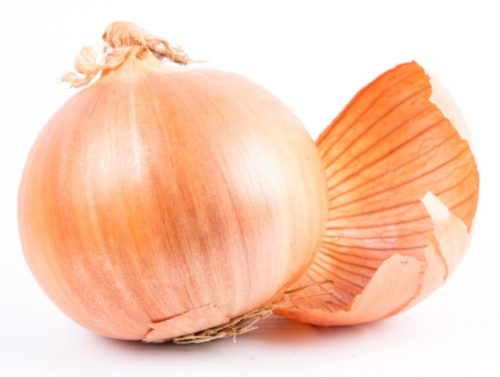
The Tactical Layer consists of the literal board game and the pieces moving around on it. Diplomacy is not a popularity contest; the outcome of the game will be determined by the movement of the pieces on the board, not who made the most friends. Indeed, the locations and movements of the pieces on the board themselves tell a voluminous story about each player’s capabilities, relationships, and intentions. When players send you messages that are consistent with your “read of the board,” they are likely telling you the truth. When players’ words and actions are inconsistent, their true intentions are far more likely to be discovered by interpreting their actions (that is, “reading the board”) than by listening to their mere words.
However, the depth of intrigue taking place in Diplomacy goes deeper still. Players deliberately choose Tactics that place themselves in immense danger. Players give away supply centers that would otherwise increase their power, and temporarily seize supply centers that they will not be able to hold for long. Players move their pieces in unusual ways or into inscrutable positions precisely because they know that others can “read the board.”

And sometimes, players who appear in every way to be bitter enemies are engaged in a clandestine love affair.
Fundamentally, Diplomacy is a “Strategy”-type board game. The Politics and the Tactics allow players to scout the Strategic landscape and to carry out a Strategic vision. So to reach a true, full understanding of a Diplomacy match, we must look at….
The Onion’s Center: The Strategic Layer
Strategy is the soul that animates the player. Strategy is how a player decides what to say and who to say it to. Strategy is why pieces move from one place to the next. Unless a player is a complete novice or entering orders in error, that player’s Politics and Tactics are always moving according to that player’s Strategy.
Thus, to achieve a complete understanding of one of your rivals, you must correctly determine that player’s Strategy. Once you know a player’s Strategy, everything they have said and done will make sense—and you can predict their future actions as well.
To peer into a person’s soul is no easy task. The details of a player’s Strategy are something they hold very dear, very secret. An experienced Diplomacy player is skilled at concealing the contours of their Strategy. But if you want to know what a player is truly doing and thinking, you must find a way to perceive their Strategy. Strategy is the truest, deepest, realest thing about that player.
The player’s press is not their Strategy. Like a squid spraying a cloud of ink to obscure its movements, skilled players spray a torrent of messages to obscure their plans.

The movement of a player’s pieces is not their Strategy. Although the location and movement of pieces cannot be hidden from you by Politics (although, by Jove, players will try), many Tactical situations are ambiguous, contingent, and accidental.
By “ambiguous” I mean that certain board positions are difficult to read because the positions are subject to more than one interpretation (sometimes many!). By “contingent” I mean that players usually select moves without knowing whether the moves will succeed and while planning for multiple different possible futures. By “accidental” I am referring not just to miscommunications and misorders, but also multiple players simultaneously choosing, in secret, to take actions that result in a game state that neither intended (e.g., backstabbing each other at the same time).
And, knowing that certain Tactics will reveal too much Strategic information, veteran Diplomacy players deliberately choose Tactics that are ambiguous, and that appear to be contingent or unintended.
So the Politics and the Tactics give you hints of what a player is trying to accomplish and how they intend to do it, but you cannot rely on those those Layers alone. Politics and Tactics do not necessarily mean what they appear to mean. A player’s Strategy is the truth that you must discern through your analysis of Politics and Tactics…and your personal intuition.
A Strategy is a Goal attached to a Plan
In my spin-off article, The Top 5 Strategic Goals in Diplomacy, I listed—in general terms—the main goals players seek in a match of Diplomacy (e.g., Solo Win, Strong Draw). The number of possible Strategic goals is small, and these goals are easy to understand.
“A goal without a plan is just a wish.”
anonymous
Diplomacy Strategy is complex because there are many ways to achieve these goals. Thus, understanding another player’s goal is not enough; you must understand that player’s plan.
A player’s goal and plan is that player’s Strategy.
Detect Rivals’ Strategies with Your Intuition
A player (or alliance of players) executing an elaborate Strategy will typically put forth immense efforts to conceal what they are doing. To perceive hidden Strategies, you must not entirely rely on what your senses tell you is transpiring in the match—you need an intuition (sometimes called a “gut feeling”). That is to say, you need knowledge that comes from outside the match that you use to interpret what you are experiencing. Like a detective investigating a crime, you must use a combination of inductive reasoning (what is probable based on past experience?) and deductive reasoning (what is theoretically possible?) to narrow down the suspects.
To have any hope of detecting secret Strategies, you must train your intuition.
The intuition I am talking about looks much deeper than finding the answer to the simple question “Is this a lie?” When you drill deep into your rival’s Strategy, will ask yourself penetrating questions like:
- “Why would the player tell this lie to me? Is there something for them to gain if someone believes this lie?” (If they have something to gain by lying, it might be a lie.)
- “If that’s why they’re lying, doesn’t that mean they’re going to do [X] next turn?” (You can predict a player’s actions if you know their goals and see through their lies.)
- “Are they making a truth seem like a lie? Do they have something to gain from me believing that they’re going to do [X] next turn? “ (If a player could gain from anticipating that you will try to counter [X], they might be baiting you.)
- “Who would Strategically benefit if I knew the truth?” (If a player can Strategically benefit from helping you, that player will probably help you in good faith.)
To ask and answer these Strategic questions assumes that you understand what it is to “gain” something in Diplomacy—independent of your rivals’ (unreliable) statements of what they claim are their interests.
Because Diplomacy is a game of intrigue, a player’s true interest is not necessarily obvious. As I explained in my essay Solo Win Tip #1: Forget the Numbers Game, even the apparently-conspicuous game objective of “conquer more supply centers!” is somewhat misleading because all supply centers are not equally important.
A strong rival will take advantage of any of your mental limitations or misperceptions. To prevent others from exploiting you, you must fortify your powers of intuition.
To Gain Intuition, Develop Your Common Sense
In order to intuit what a player’s Strategy might be, you have to have some “common sense” about how Diplomacy matches are played. I am not talking about the common sense shared by all people, but rather the common sense shared by experienced Diplomacy players. You need to know what players commonly do and how they commonly do it.
There are two ways you can improve your common sense:
1. Gain Personal Experience
Play more Diplomacy matches and pay attention to what happens. Every match is unique, but there are certain Strategic patterns you will encounter over and over again.

Example: Russia and Turkey convince Italy to immediately attack Austria, each promising to turn on the other when Austria falls. Russia and Turkey even make some movements to indicate a mutual hostility. But when Austria falls, Russia turns completely north and gives Turkey a free hand vs. Italy. The Juggernaut alliance played Italy like a fiddle.
When your matches end, ask the other players to tell you more about what they were thinking and doing. Most players are friendly and helpful, and will give you genuine explanations and advice.
2. Gain Vicarious Experience
Read as much as you can that is written by veteran Diplomacy players. Talk to experienced players about what they know. Ask questions. Dig up old articles. Subscribe to my blog…
And that’s it. You need to play more Diplomacy, and you need to learn more about Diplomacy. That is how you will improve your common sense.
To Perceive Strategy, Compare Politics and Tactics to Your Common Sense
At every moment, you should be making a conscious effort to ascertain each of your rivals’ Strategies. A player’s Politics and Tactics tell you something about that player’s Strategy, because Politics and Tactics are a manifestation of Strategy. But those two things are not per se the Strategy.
The challenge is that Strategy is the least-perceptible Layer in the match. You can read or listen to words, and you can observe the moves on the board, but primary senses are not what you use to perceive a player’s Strategy.
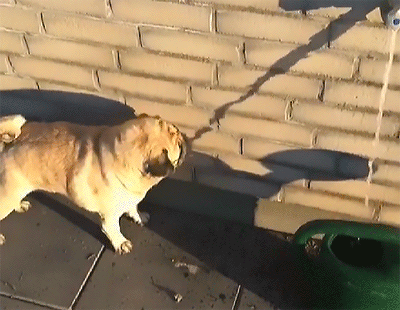
The shadow looming on the ground, by itself, is not enough information to understand what has cast the shadow. You must have some kind of knowledge external to the shadow (i.e., common sense) that informs you as to what sorts of things normally cast this kind of shadow. Thus, you can infer the nature of the object casting the shadow by combining what you observe about the shadow with your general knowledge. This is the essence of intuition.
The Strategy is the thing you need to understand but can’t behold; the Politics and Tactics are the shadow cast by the Strategy. By combining your common sense of what Diplomacy players usually do with your observations of what the players are saying and doing, you can intuit the nature of a given player’s true intentions in a given match. With your intuition of a player’s Strategy, you can reliably predict that player’s moves.
For example, it is common sense that a German player will not attack Austria or Italy as their first target; Germany usually first attacks England, France or Russia. So if you find yourself in the early part of the match, and Germany seems hostile to France, and Germany moves an army from Munich to Tyrolia while Tyrolia and Piedmont are empty, it is reasonable for you to infer and believe that Germany intends to move this army to Piedmont in order to attack France from multiple directions. Even though, just looking at the board, that army in Tyrolia could be used for attacking Austria or Italy, such an attack usually makes little Strategic sense for Germany at the start of the match. This is an example of inductive reasoning.
Inductive reasoning will help you start with the obvious probabilities (e.g., “In Spring 1901, Italy opened to Piedmont, Apulia, and Ionian Sea, so Italy likely wants to ally Austria and perhaps attack Turkey or France.”), but deductive reasoning (ruling out interpretations that are impossible) becomes more helpful as the match develops. As each turn passes, you will have more and more data with which you can narrow down the possible interpretations.

Once you ascertain a player’s Strategy, their efforts to manipulate you with words with seem laughably transparent. If you intuit a player’s ultimate goals, the hidden meaning lurking underneath their Tactical choices will almost walk into your mind and announce itself. Nothing will be beyond your perception.
It Takes One to Know One
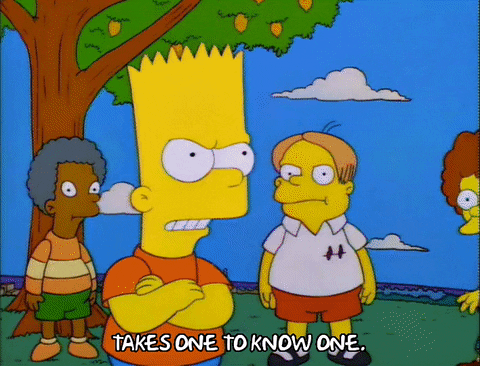
To create accurate mental models of your rivals’ Strategies, you must learn how to think (and play!) Strategically yourself.
Although there are a large number of possible Strategies in Diplomacy, I don’t think that number is infinite. As you learn more about Strategic considerations in Diplomacy (a reasonable starting point is to look at my solo win maps for Gunboat Diplomacy), you will find it easier and easier to intuit the Strategies your rivals have chosen to employ.
It is not necessary to know everything that is theoretically possible in Diplomacy; you just need common sense as to what reasonable Strategies exist and the frequency with which players actually use those Strategies. Although the common Strategies have infinite minor variations, the basic structure for the solo win plan rarely changes: Make alliances. Work with your allies until you get within striking distance of 18 supply centers. Then, at the perfect moment, backstab your allies to conquer the needed 18.
Playing to Win
If I write about Diplomacy long enough, I’ll eventually write guides on how to accomplish draw-related goals (there’s a lot to be said about fighting for a place in the draw). But because most players are trying to get a solo win if possible, I think that’s the better focal point for a primer on Diplomacy Strategy. So, for the purposes of this article, I will assume you are playing for the solo win.

When you are playing to win, your Strategy is the answer to this: What is my plan for how I will acquire 18 supply centers?
You don’t have to (and probably shouldn’t) join a new Diplomacy match with a preconceived Strategy. It is possible for you to solo win with almost any ally or combination of allies, so you should prioritize Political considerations during the first turn (or sometimes the first several turns, if the match is slow to develop). Keep an open mind!
As you form your alliances, think of a long-term plan for how to play out your alliance in such a way that you will eventually be able to attempt a solo win. This is the essence of “thinking Strategically,” and thinking Strategically is essential to consistently achieving solo wins.
There is no single “correct” way to plan out your solo wins; only methods of thinking that will help you understand what is likely to happen and where your advantage might lie.
Let’s Get Down to Earth about Geography
Thinking Strategically requires you to consider geography. Some long-term alliances are naturally more favorable to your prospect of a solo win than others because of how the geography of the game board forces you to move your pieces. Alliances between certain neighbors rarely last past the mid-game because one or both powers run out room to expand.
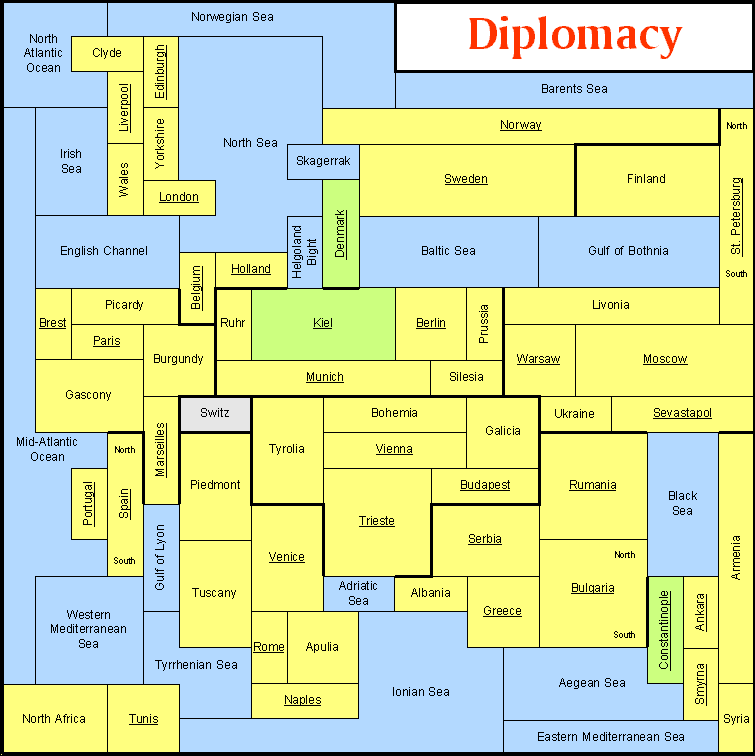
A common plan is to convince your neighbor-ally that the alliance is long-term (so as to encourage them to lower their defensive positions)—then massively backstab that ally once the alliance has achieved its early-game goals. Even if you are not following the mid-game backstab plan, you should be wary that your neighbor-ally might be.

It is beyond dispute that a natural enemy, more often than not, is hoping to eat you for breakfast. And if not for breakfast, then for lunch or dinner. Even the idea that you can convert this liability into an asset (due to how surprising such an alliance is) necessarily assumes the truth of the common sense I am advising players to employ.
To be clear: I’m not saying that geographical limitations make certain long-term alliances impossible; I’m just saying that thinking Strategically requires you to anticipate the eventual problems. An alliance between natural enemies has certain disadvantages that a canny player must overcome and/or transform into an advantage.
For example, when you play as Austria, offers of long-term alliance and cooperation from England, France, or Germany (distant powers, called “natural allies”) are inherently more credible than such offers from Italy or Russia (powers who might do well without attacking Austria), and an order of magnitude more trustworthy than such an offer from Turkey (a neighbor who can hardly achieve anything so long as Austria exists, which I call a “natural enemy”). An Austrian player who thinks Strategically will have such thoughts as
- All else being equal, I prefer Russia as an ally to Turkey.
- Turkey can backstab Austria rather easily and has a huge Strategic incentive to do so. Conversely, Turkey is difficult for Austria to backstab and this problem gets worse if Turkey grows.
- Alliance with Russia is more likely to be genuine and last a while. Theoretically, I could wait until very late in the game to backstab Russia in order to attempt a solo win. The longer the alliance lasts, the more opportunity I will have to gain Russia’s trust and set up a powerful backstab. Tactically speaking, Russia is easier to backstab than Turkey.
- I should ask a lot of a potential Turkish ally.
- I should demand (and expect!) deferential treatment from a Turkish ally. That way Turkey won’t be able to backstab me.
- E.g., I, Austria, get to have more supply centers than Turkey to offset Turkey’s valuable corner position (for more information, check out Solo Win Tip #1: Forget the Numbers Game).
- How soon can I backstab Turkey?
- In an alliance with Turkey, I should scheme on how to advantageously backstab Turkey as soon as practicable. Destroying Turkey early will give me a defensible perimeter and momentum towards a solo win.
- E.g., I could use the alliance as a ruse to induce Turkey to attack someone else, and then strike a poorly-defended Turkey when the time is right.
- I could convert the instability of the alliance into an advantage.
- Because an Austria/Turkey alliance is typically unstable, the other powers will probably believe me and Turkey if we (falsely) promise to backstab each other as soon as we can. That would cause other powers to under-estimate our alliance.
- By successfully taking the alliance beyond its natural geographic limits, I will be able to capture centers far to the North and West (or, as it is commonly said, “past the stalemate line”). This will give me the opportunity to backstab Turkey for the solo win (especially if Turkey has been lulled into a false sense of security after so many turns have passed).
These are just examples; this is not an exhaustive list.
I deem these examples to be “Strategic thoughts” because each line of thinking consists of ways to combine raw Political thoughts (such as “Turkey wants to be my ally!”) with Strategic questions (such as “Does alliance with Turkey further my goal of winning?” and “How can I use alliance with Turkey to increase my chances of winning ?”).
Your Rivals are Thinking Strategically
You must assume that your rivals are playing to win. In other words, you must assume that they are willing to do whatever will facilitate their victory. If you assume that this is how your rivals think, you will be difficult to fool.
You must further assume that your rivals are capable of winning. Unless your rivals are novices or incompetent, they are laying their own Strategic designs on the match.
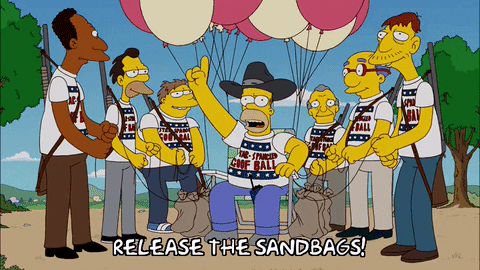
By the way, it is easy to pretend to be a novice or incompetent. This is called “sandbagging.” I and others sandbag not just in Diplomacy, but in virtually every game there is. Most competitors have an inflated sense of their own abilities, which leads them to quickly conclude that their opponents are not very good. When I sandbag, I inflate that ego bubble as big as I can get it so that they don’t predict my masterful moves—and then burst that bubble with a winning play.
So you would be wise to suppose that apparently-inexperienced players are just sandbagging—at least until you have some inarguable proof to the contrary (e.g., they seem weak, made poor moves, and are losing badly).
Whatever your rivals are saying, whatever they appear to be doing, you should mentally interpret those words and actions through the lens of their Strategy. That is to say, assume that your rivals are saying and doing things that they believe are bringing them closer to their own solo win (or favorable draw, etc.).

When you assume your rivals are playing Strategically, you will find it easier to make sense of what they are doing, guess at their hidden thoughts, detect their lies, and thwart their plans. If you don’t understand why your rival is saying what they are saying, or why they are doing what they’re doing, it’s probably because you don’t understand what Strategy they are employing.
If you start your thinking with the assumption that your rivals are doing what they believe will help them get a solo win (or stop yours!), you can infer all sorts of details about their plans. From there, you can figure out two things your rivals desperately want you to conceal from you:
- How to thwart their plans. If you know someone’s Strategy, you can figure out what you must do to counter it.
- How to convert their plans into your own advantage. You can pick and choose which parts of their plans you want to resist and which parts you can accommodate. They will be unable to manipulate you into doing something contrary to your interest, but you can (Strategically!) further your rival’s plan to the extent that both your Strategies are furthered by a shared goal. In this way, you might seize the reigns of your rival’s Strategy.
Examples of Thinking Strategically
A great way to learn how to think Strategically is to read through my two Diplomacy Journals. If you read these journals, you will notice that:
- I discussed my goals at the start of the match, before even knowing what the other players might do.
- I frequently evaluated whether I was progressing toward my goals, and occasionally reconsidered my goals.
- I kept my goals in mind at every moment, and everything I did was motivated by achieving my goals.
- I frequently speculated at what my rivals were trying to achieve. Far more often than not, I correctly predicted my rivals actions by understanding their intentions.
So What Do You Do?
All warfare is based on deception.
Sun Tzu, The Art of War (~500 B.C.)
Hence, when able to attack, we must seem unable; when using our forces, we must seem inactive; when we are near, we must make the enemy believe we are far away; when far away, we must make him believe we are near.
Hold out baits to entice the enemy. Feign disorder, and crush him.
To penetrate your rivals’ deceptions, peel back Diplomacy’s layers.
Read their Press, but compare it to their Tactics. Believe what you see—don’t let players disguise their clear intentions with a veil of explanations and excuses.
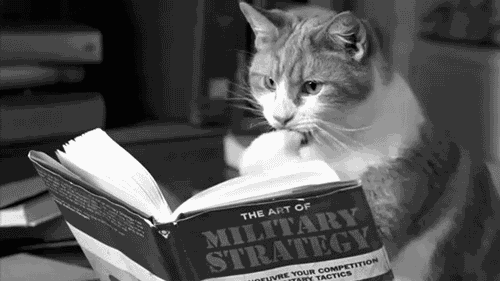
Ponder their Politics, observe their Tactics, and then try to understand their Strategy. Strange, seemingly-counter productive Political maneuvers (like goading a player into attacking) and Tactical choices (like making a disadvantageous build choice, or giving up supply centers) often serve a larger Strategic purpose.
Build in your mind a model of each rival’s Strategy. Your model of a given rival’s strategy should be built from:
- Your general knowledge about how Diplomacy players play the power helmed by that rival.
- The implications of their Tactical choices.
- Everything you can infer from Politics.
And of course, you can apply the inverse of this lesson: to accomplish your own Strategic goals, obscure your intentions with some combination of
- Pursue an unusual Strategy. It will be difficult for your rivals to intuit.
- Make ambiguous moves. You can give each player a different explanation as to the moves’ meanings.
- Use your press to misdirect others. You don’t necessarily have to lie to manipulate other players.
The Onion Theory is Just One Tool for Understanding Diplomacy
I predict that some critics will accuse me of over-simplifying how Diplomacy is played in order to make this topic more digestible.
To that I say: Diplomacy is just so immensely complicated that some kind of simplification is necessary in order to explain what is going on. I’m trying to teach the reader how to “see through lies”—and one useful tool, among many, is to think about the game in terms of the Layers I described and in the way I described them. Some players really need help, and they have to start somewhere.
My Onions theory (my hierarchical placement of Politics, Tactics, and Strategy) is not intended as an all-purpose theory for understanding everything in Diplomacy. In general, Politics, Tactics, and Strategy are interwoven and any one of the three “Layers” could give rise to something in either of the other two. But when it comes to seeing through lies and manipulations, I do think the Onion theory is helpful.
What’s Missing from This Article?
If you’ve gotten to the end of this article, and find yourself wanting to say “BrotherBored left out a lot of details, there’s a lot more to say about Politics, Tactics, Strategy!”… you are right. There is so much more to Diplomacy than can be captured in a single article or can be demonstrated with examples. I have so much more I want to say, but I can’t put everything into one article or the thing will become unreadable.
So yes, I fully acknowledge that this series of essays has limitations.
I have not provided detailed examinations of all possible Strategic plans, or an inventory of every possible Tactical decision and its implications, or a catalogue of the Political techniques players use to cajole, manipulate, and deceive each other. This just cannot be accomplished in one, ten, or even fifty articles. I swear to you, I can imagine myself spending the rest of my life playing and writing about Diplomacy, but I cannot imagine myself succeeding in describing every aspect of this game. Diplomacy is as vast and complicated as the human experience, and all the richness of life can hardly be described in every detail on some guy’s blog.
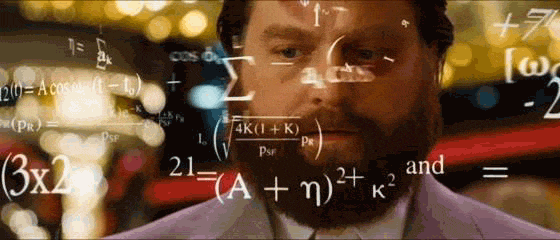
But gosh-darn-it, I’m trying.
